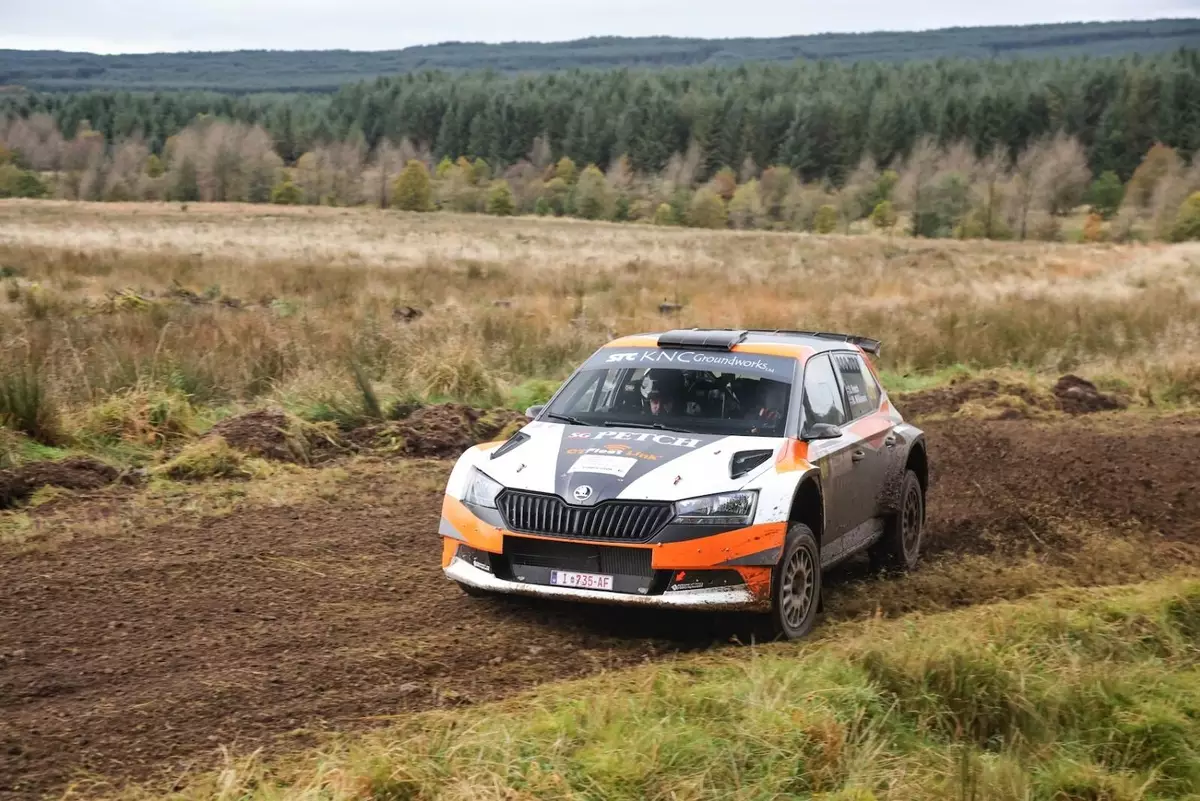The rallying community in the UK faces significant challenges this year, yet it continues to demonstrate resilience and adaptability. The recently announced Carlisle Stages seeks to fill a critical void left by the cancellation of the Severn Valley Stages, which was set to be the second round of the British Rally Championship (BRC). In a remarkable demonstration of swift action, the Carlisle Stages will be organized and run within a record-breaking timeframe of just 12 weeks.
The original plan for the BRC calendar included a mid-Wales event that was scrapped due to the destruction left by Storm Darragh in early December. The storm caused widespread damage to local forests, leading Natural Resources Wales to revoke permits for the Severn Valley Stages. This scenario created a significant disruption not only in the BRC but also for the British Historic Rally Championship (BHRC). In light of this, Colin Heppenstall, the mastermind behind the well-known Roger Albert Clark Rally, offered a lifeline by taking charge of the Carlisle Stages. The event will occur on April 12, 2024, utilizing the challenging terrain of the Kielder forest, thus maintaining continuity within the rally calendar.
The Kielder forest, famed for its rugged landscape, will serve as the backdrop for the Carlisle Stages, which plans to cover approximately 50 stage miles. While this event has been staged in previous years, it was not initially scheduled for the current season. Nevertheless, the urgency brought on by the cancellation of the Severn Valley event allowed Heppenstall and his team at the Roger Albert Clark Rally Motor Club to pivot quickly. By tapping into existing resources and an enthusiastic volunteer base, the Carlisle event has transformed from a mere concept into a fully-fledged competition in less than three months.
The significance of this venue cannot be overstated. It not only offers a distinctive set of challenges for drivers and teams but also revitalizes a spirit of camaraderie within the rallying community. According to Heppenstall, the quick turnaround was a necessity after witnessing the effects of cancellations on various stakeholders, particularly in the context of rally enthusiasts eagerly awaiting a competition after their long hiatus.
The support from organisations such as Motorsport UK has been pivotal in bringing the Carlisle Stages to fruition. BRC Championship manager Reece Tarren expressed gratitude towards Heppenstall and his team for stepping up in response to the cancellations. The rally’s itinerary has been carefully curated to align with other gravel events in the calendar, ensuring a frugal and seamless integration for participants. This level of coordination is vital for the sustainability and progression of rallying in the UK, allowing teams to adapt without significant upheaval.
Notably, the disruption in the rallying calendar extends beyond the UK. Just as the momentum built through the introduction of the Carlisle Stages picks up, news emerges that the Galway Rally has also been postponed due to the adverse effects of Storm Eowyn. Similar to Storm Darragh’s aftermath, the severe weather has caused substantial infrastructure damage to the rally route and has left many local residents without essential services. Furthermore, the storm’s impact on communication networks underscores the significant challenges that rally organisers must navigate, raising critical safety concerns that take precedence over sporting events.
Despite these setbacks, the rallying community is laced with hope and determination. From the initiative of the Carlisle Stages to the ongoing efforts to reschedule events like the Galway Rally, the industry showcases an unwavering commitment to resilience. In an environment marked by unpredictability, such adaptability serves as a beacon for the future of rallying in the UK. As the resonates, one thing is clear: the spirit of rallying will continue to thrive amid adversity, united by the passion of its communities and supported by its institutions.

